Disclaimer: This blog post contains affiliate links. If you make a purchase through these links, I may earn a small commission at no additional cost to you. Learn More. Thank you for supporting our garden community.
How to Get Rid of Aphids Naturally and For Good
Aphids are one of the most frustrating garden pests, capable of infesting plants and weakening them by sucking out their sap. If you’ve ever seen curled, yellowing leaves or a sticky residue on your plants, you’re probably dealing with aphids. The good news? You can get rid of aphids effectively using natural methods that won’t harm your garden.
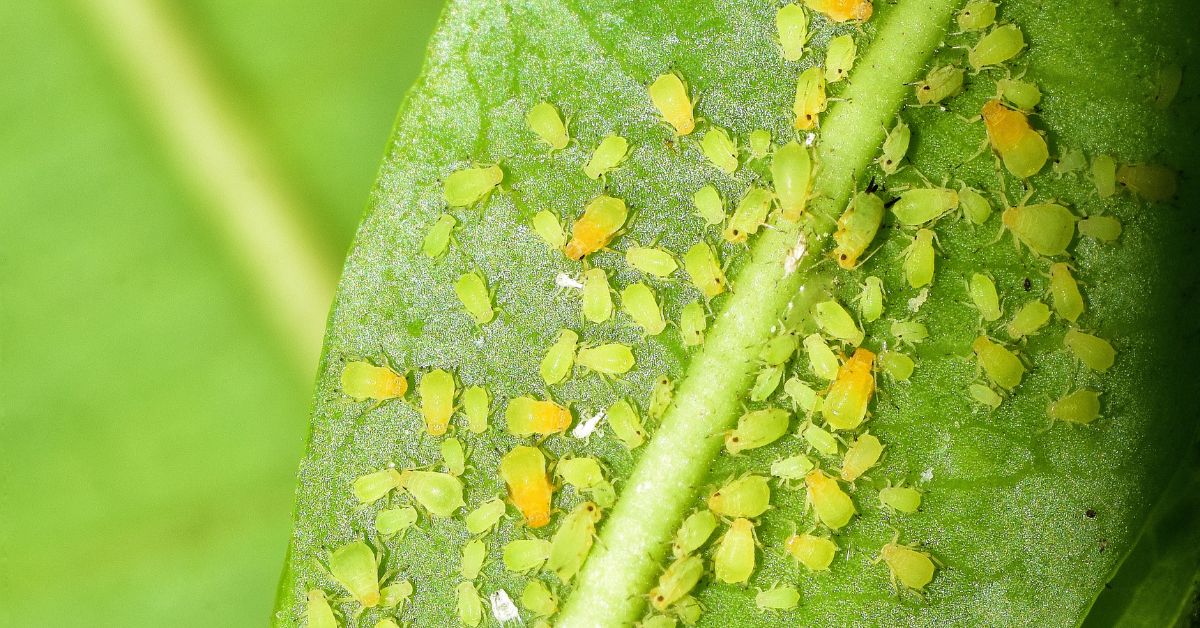
How to Get Rid of Aphids Naturally
Aphids are one of the most common vegetable garden pests. And the problem is that they attack basically every plant in the garden. They really aren’t picky.
This is what makes it so difficult to get rid of them; not because they’re hard to kill, but because they’re everywhere.
But there are also a few other factors that give the not-so-humble aphid an easy chance in your garden.
So let’s get right into how to get rid of aphids naturally FOR GOOD.
Products:
To buy high-quality garden seeds, check out Burpee.
For a wide selection of perennial garden plants, check out Nature Hills Nursery.
For gardening equipment, check out Bootstrap Farmer.
What are Aphids?
Aphids are tiny insects that have a soft body. They have an exoskeleton, but it is very soft and doesn’t protect them all that much.
Aphids come in many different colours, like black, yellow, green, and brown. The most common aphid is the green peach aphid, which is said to have over 500 host plants.
Life Cycle of Aphids
Aphids reproduce very quickly, which makes controlling their population difficult. Their life cycle consists of several stages:
- Egg Stage: When it’s cold, aphids lay overwintering eggs on woody plants. These eggs hatch in the spring, giving rise to the first generation of aphids.
- Nymph Stage: Once they hatch, the young aphids (nymphs) start eating right away. They molt several times before reaching adulthood, growing larger with each stage.
- Adult Stage: Aphids continue to feed and reproduce throughout the growing season, harming your plants and
- Winged Aphids: When food becomes scarce or overcrowding occurs, some aphids develop wings and migrate to new plants, spreading infestations across the garden.
But the worst part is that during most of the year (warmer months), aphids reproduce asexually. That means that they don’t need a partner to reproduce.
This may sound like whatever at first, but it really means that aphids can regenerate an entire population from just one lone aphid. That’s too crazy. This causes the population to absolutely boom in the summer.
They only reproduce sexually (with a partner and eggs are made) in the cooler months because this is generally a slower period for aphid development.
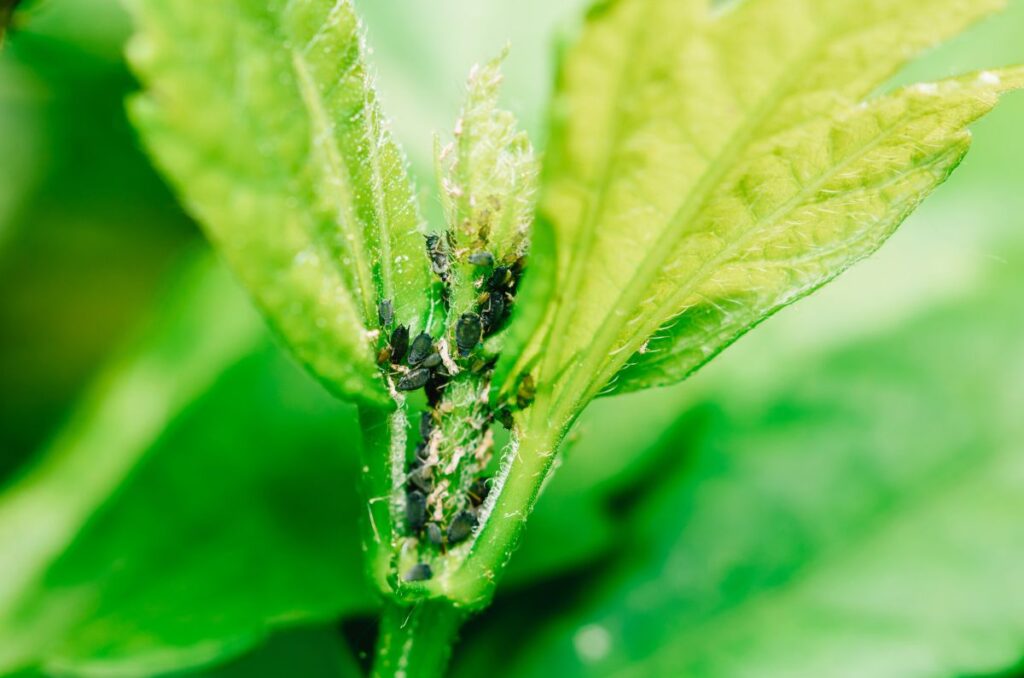
What do Aphids do to Plants?
These pests attack really any plant in your vegetable garden. They like tomatoes, peppers, lettuce, cucumbers, zucchini, and potatoes. Really anything.
They are typically found on the undersides of leaves, as this is how they protect themselves from the sun and wind. But they’re not all good.
When on the leaves, aphids pierce a hole through them and start sucking the liquid from the plant. This causes the plants’ leaves to yellow, curl, or even stunt growth entirely.
Aphids especially like to target the newest, freshest growth of a plant, which is problematic because that’s where the plant continues to grow. If the aphids eat it, then the plant will either not grow, not flower, or just die.
But that’s not even the worst of it.
You see, just like many other pests, aphids can carry diseases that may not necessarily harm them, but will harm their host plant once transmitted. This includes most of the common mosaic viruses.
They suck on the leaves of an infected plant and bring the disease over to a nearby plant. And because there are so many of them, it basically never ends.
Are Aphids Attracted to Yellow?
Many home gardeners use “aphid traps” to try to trap aphids with a sticky material. These consist of a yellow surface with something sticky (like vaseline) on it.
The idea is that the yellow colour will attract the aphids, they will fly towards it, then they will get stuck and die.
Well, that probably won’t happen.
I’ll grant that aphids are attracted to bright yellow, but most aphids don’t even have wings.
And the ones that do have wings aren’t really good at flying anyways. Especially with all the wind outside, they will just get blown away easily because of their light bodies.
Well then can’t the aphids walk towards the yellow? Again, they probably won’t.
When aphids are in a comfortable spot under a leaf, they rarely ever venture out away from the leaf, let alone down the stem, across the soil, up the trap, and on the surface. It basically won’t ever happen.
And on top of that, these yellow traps also attract many other insects, including the beneficial ones. That means that any bug can possibly stick itself to the trap and die.
Don’t use yellow aphid traps in the garden, they basically don’t do anything.
Instead, use the proven methods in this article.
How to Get Rid of Aphids Naturally (Proven Methods)
There are only 3 methods for getting rid of aphids that I am willing to share because they actually work. There’s lots of nonsense when it comes to this topic, but just like you, I’m about the solution.
So here are my top 3 ways to get rid of aphids naturally.
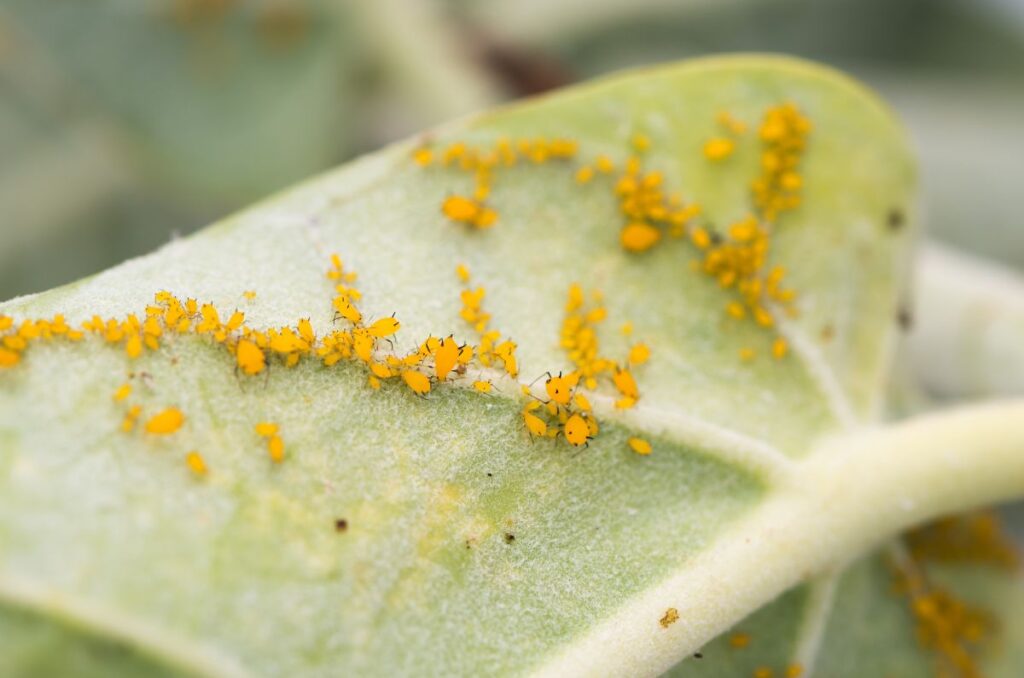
1. Manual Removal
I know, some people might find removing aphids with their hands nasty. But honestly, there’s something so satisfying about it.
When I know that I am reducing the aphid population with my own hands, and when I can actually see them get squished and die, it’s great.
But if you don’t want to use your hands, you can also use a strong stream of water from your hose.
Just turn over the leaves and blast them with the “flat” setting on your hose. If this doesn’t kill them right away, then they will die in the air or wherever they land.
If you have an area that is especially infested by aphids, just prune that part off and throw it out or burn it. It’s better that you remove it than letting the aphids take over.
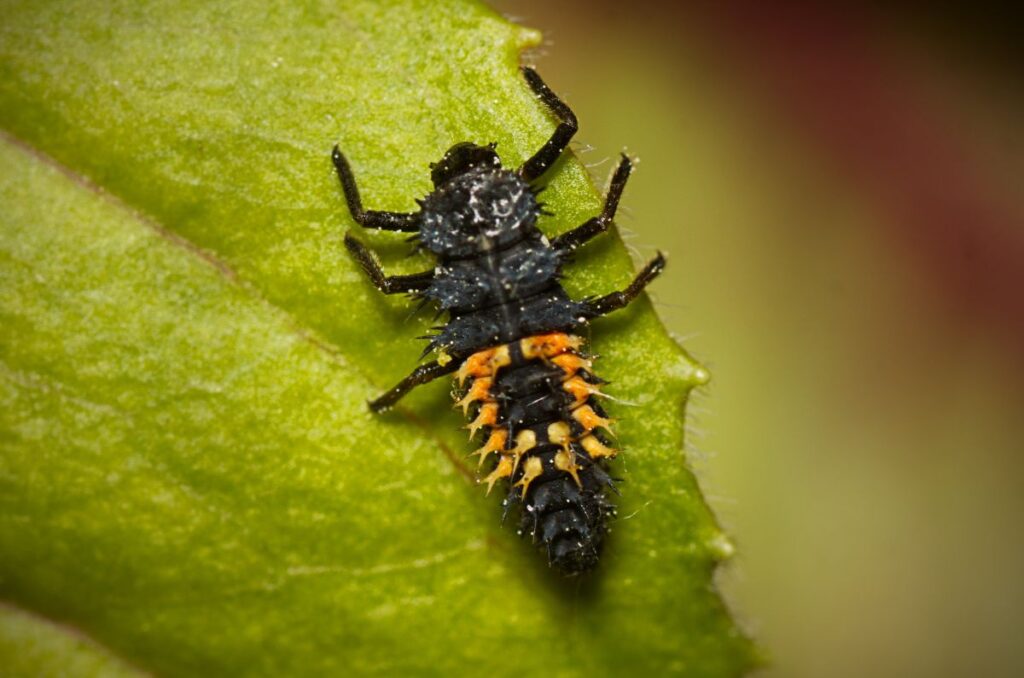
2. Attract Natural Predators
There are actually some beneficial bugs that eat aphids, meaning you don’t even have to look at them.
There are 3 main predatory insects to look out for:
- Ladybugs: Both adult ladybugs and their larvae eat aphids. To attract them, plant dill, fennel, yarrow, and marigolds.
- Lacewings: Lacewing larvae are sometimes called “aphid lions” because of their huge appetite for aphids. They are drawn to gardens with cosmos, sunflowers, and cilantro.
- Hoverflies: Hoverfly larvae consume large numbers of aphids. You can attract them by planting salvia, marigolds, and lavender.
When these beneficial insects are in and around your garden, they will naturally eat aphids on your plants.
Some gardeners recommend buying ladybugs and releasing them into your garden. But this is not a good idea.
Firstly, it’s just more money that you have to spend, which is not good.
Secondly, they may not be a native ladybug species, so you could be introducing an invasive insect.
Thirdly, they’re just going to fly away from your garden and go somewhere else.
So instead of buying ladybugs and other insects, just attract the ones that are already around us to your garden, and you’ll see the aphid population go down.
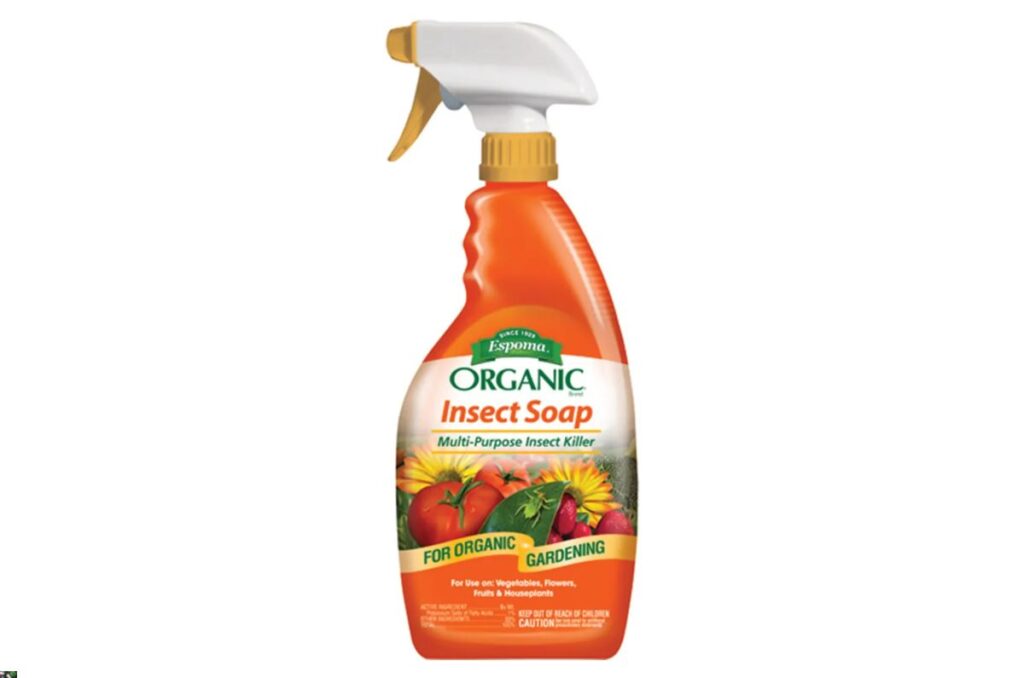
3. Insecticidal Soap
This is by far the easiest and most effective method for controlling aphids in your garden.
Don’t use dish soap, as it contains many compounds that are not good for the garden (or for your hands). Instead, use an organic soap derived from natural ingredients. Dr. Bronner’s castile soap is a good one.
Add about a tablespoon of soap to 500 mL of water in a spray bottle. I like it strong so that the aphids die brutally.
Make sure to spray all the areas that are infected with aphids; under the leaves, at the growing tips, and along the stems. Spray the plants everyday until there are no aphids left.
Even if you only see 1 aphid, spray the entire plant. Have no mercy on those pests. If they can reproduce asexually, then you have to be merciless.
Don’t worry, it won’t affect your plants. It’s a completely organic option especially for vegetables.
You can also try this ready-to-use insecticidal soap from Espoma Organics. You don’t have to do any diluting with this one because it is ready-to-use (RTU).
For those interested in chemistry, the soap works because it is a surfactant, meaning it acts as both a polar and non-polar molecule. Because the waxy coating on aphids is a non-polar molecule, the soap can dissolve it easily (like dissolves like).
When the aphids’ coating is dissolved, it will die shortly after.
The only concern with using this method is that it might leave dead aphids all over your plants’ leaves. This isn’t a big deal though, as the rain will naturally wash them away.
How to Get Rid of Aphids Indoors
Getting rid of aphids indoors is a bit more challenging than outdoors, simply because there are no weather patterns or natural predators.
The first thing I’ll say is that you probably have aphids indoors because you weren’t paying attention. Aphids don’t just appear, they have to come from somewhere.
When bringing outside plants inside your house, you have to inspect them. Check everywhere for pests and diseases, especially aphids.
If you see aphids, either don’t bring the plant inside, or get rid of the aphids before bringing it in.
The best method for getting rid of aphids indoors is by far insecticidal soap. You can’t spray them with water and you can’t attract beneficial insects.
Can You Permanently Get Rid of Aphids?
You probably can’t get rid of aphids permanently, no matter how much you try.
However, if you do everything you can, the population will reduce down to a manageable size that will most likely be taken care of by the natural predators in your garden.
Once in a while, you might have to use the soapy spray, but it shouldn’t be as bad as the first time.
Frequently Asked Questions
Diluted vinegar is acidic enough to kill aphids. However, too much of it can also harm your plants. The best option is using soapy water.
You have to kill aphids in order to get rid of them. If you don’t want to kill them, then just leave them alone and they’ll make their home in your garden. The choice is yours.
Diatomaceous Earth (DE) can kill aphids on contact, but it is unlikely. Again, aphids usually don’t leave their feeding spots, so they won’t ever crawl on top of the DE.
The same way that soap dissolves the aphids’ wax, so does neem oil. So it will work. I just find that the insecticidal soap dissolves better in water, meaning it will be sprayed out more evenly.
There are no specific herbs that get rid of aphids. Instead, by planting a wide variety of different garden plants, aphid predators will naturally come to your garden and eat the aphids.
No, coffee grounds have basically no effect on aphid populations. Don’t listen to these things.
No, banana peels will not do anything to get rid of aphids in your garden.
Even More Gardening Ideas
Here are a few more posts to get the ball rolling in your garden!
- How to Grow Carrots from Seed to Harvest
- How to Harden Off Seedlings to Reduce Transplant Shock
- How to Deter Slugs in the Garden Naturally
If you liked this article, make sure to share it with your friends and family members who are also looking to sharpen their gardening skills. Also, consider signing up for our email newsletter; don’t worry, we won’t send you spam, just fresh gardening ideas every week!
If you want to learn more about vegetable gardening, check out The Real Gardener on Facebook, YouTube, and Pinterest.
Pin this post for later:
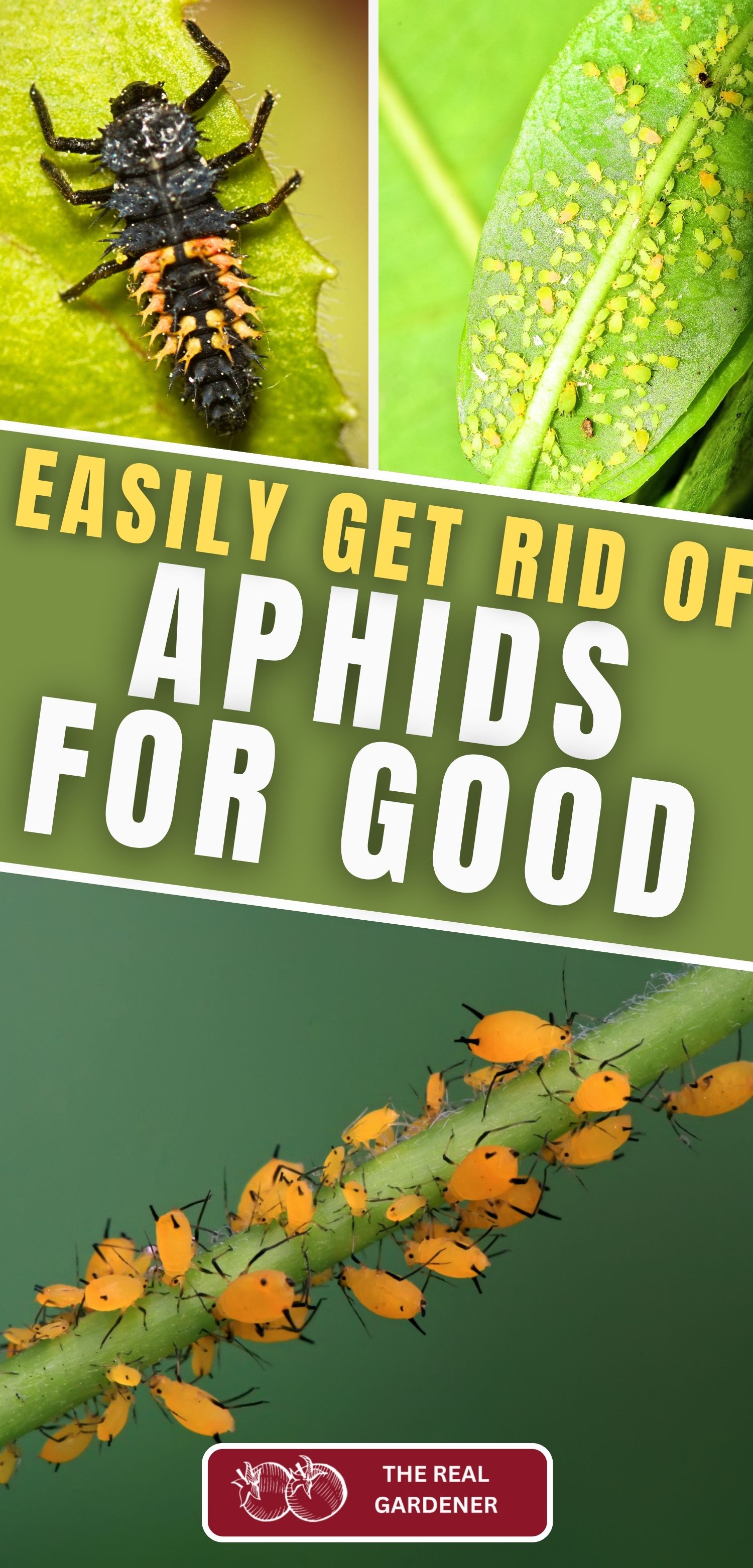
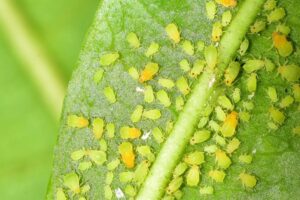
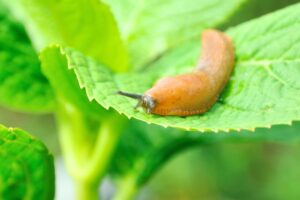
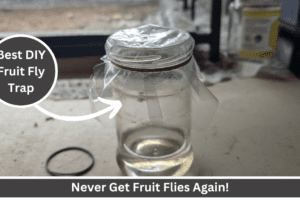
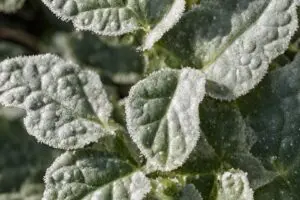
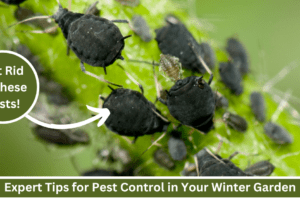
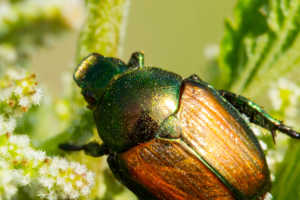
Leave a Reply